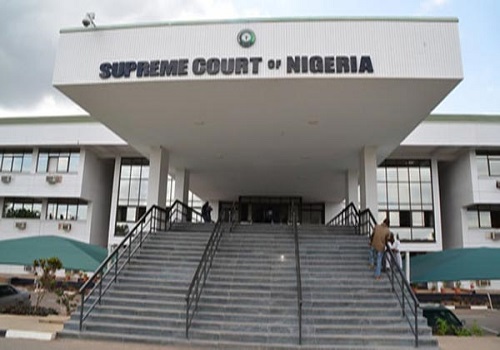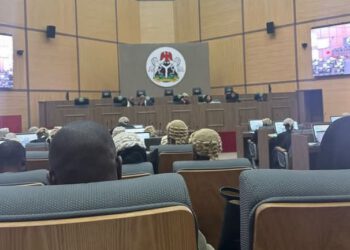The Supreme Court has upheld the judgment of the Court of Appeal, which handed down a death sentence on three members of the Bakassi Boys vigilante group in 2006.
The defendants / appellants; Emmanuel Eze, Adiele Ndubuisi and Stanley Azuogu were convicted on charges of murder of two persons by the High Court of Abia State on February 26, 2006 and were consequently sentenced to death.
Not satisfied, the defendants separately approached the Court of Appeal to upturn the decision of the trial court.
However, the appellate court in its judgment delivered in May 2010, dismissed their appeals and affirmed the death penalty pronounced on them by the trial court.
The convicts had to appeal to the Supreme Court, praying that the murder charge on which they were convicted be substituted with manslaughter.
They had premised their appeal on the grounds that they were incited to kill the deceased by the Abia State Government.
But delivering judgment on the appeal yesterday, a five-man panel of the apex court found the appellants culpable of the murder charge and consequently affirmed the judgment of the lower court.
The panel led by Justice Dattijo Muhammad in a unanimous judgment, held that the three men truly committed murder and deserved the death penalty handed down on them.
Justice Amina Augie, who delivered the judgment of the apex court, said, “the Bakassi Boys are nothing but outlaws.”
Augie described them as “lawless persons operating outside the law, who desecrate the laws of the land in their unlawful and misguided quest to dispense justice by killing alleged criminals.”
The court in its decision held that the line of defence of the appellants, that they were provoked into killing the two persons, was baseless.
“The appellant admitted that the Bakassi vigilante group, to which he belonged was an unlawful association that dealt with alleged criminals with extreme measures which flagrantly breached the provision of the law on fair hearing”, the court held.
Justice Augie added: “Having desecrated the laws of the land with such relish and reckless abandon, and being convicted for murder, the appellant is urging this court to allow the appeal, set aside the judgment of the Court of Appeal delivered on May 5, 2010 and substitute his conviction on manslaughter, since he was incited by a third party.“There are a few things that were wrong with that line of defence.
“First of all, it was more of implicating the Abia State Government in the offence they have committed rather than a valid defence in law.
“Secondly, the learned trial judge, C.L Ubaraje, as he then was, debunked his insinuation that the Abia State Government had a hand in the killing of the deceased persons.
“Finally and more importantly, the defence of provocation to avail the appellant, there must be something said or done by the deceased persons in his presence which caused the appellant to suddenly and temporarily lose his passion and self-control.
“In other words, the appellant said he was incited by the Abia State Government to kill the two deceased persons who did not do or say anything to him to him or other Bakassi boys before they were savagely killed cannot amount to provocation and his attempt to convince this court otherwise failed woefully.
“The respondent (the prosecution – Abia State Government) is right.
“The appellant embarked on a futile journey of proving provocation which does not arise in this case as the testimony of the prosecution witnesses confirmed that the appellant and his cohorts committed the said charge with utmost dispatch and babarity without any provocation or incitement. “This appeal totally lacks merit and is dismissed.”




















